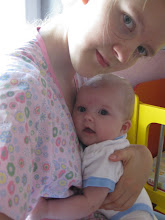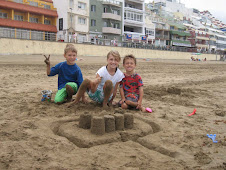
Because I believe that the best learning opportunities are those that arise naturally, we will be using an emergent curriculum rather than a traditional schedule. We will of course have some scheduled activities each day (like lunch time, nap time, story time) but much of the day will be shaped by the moods and interests of the kids. They will learn much more readily if we follow their cues so that we will be doing art when they feel inspired to create, playing outside when they feel energetic, and looking at books when they are feeling observant. I believe the kids will get a lot more out of the activities this way. And, by not constricting ourselves with a schedule we will be able to take projects to a level we couldn't reach if we tried to plan it all out ahead of time.
We engage in a variety of activities each day at Munchkin Land such as playing with toys, reading books, outdoor play, gardening, science activities, games, neighborhood walks, dress up, baking, arts and crafts, signing, make-believe, puzzles, reading more books, and so on. We will also go on regular field trips to nearby places within walking distance like the library and the park as well as places like the zoo and the museums.
To keep you informed and up to date I will send home a chart with each child everyday. On your child’s chart I will record feeding/sleeping/changing times as well as notes about your child’s activities and moods over the course of the day. This way you won’t have to wonder what your child does every day.


















